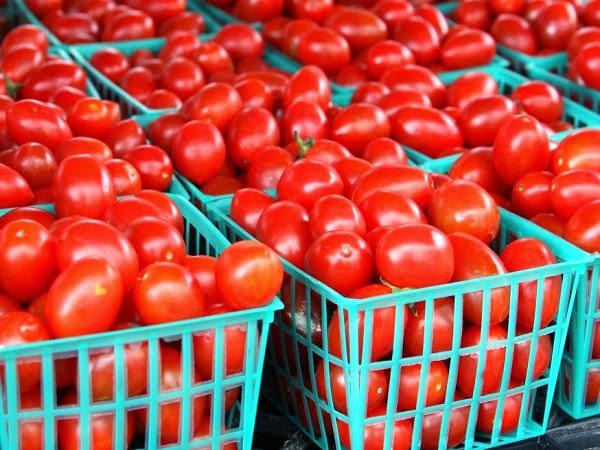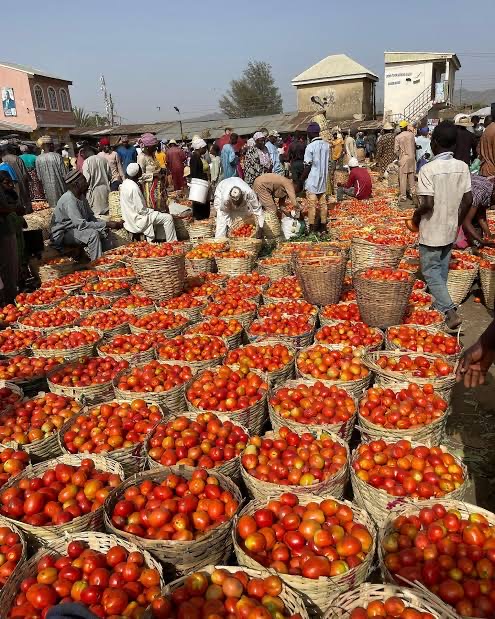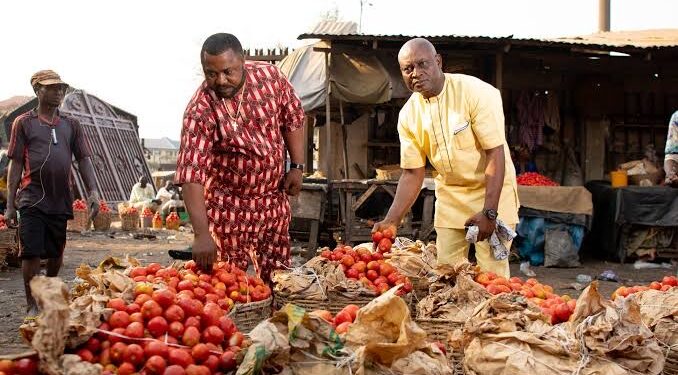Contrary to reports that the main factor behind the current surge in tomato prices is “Tuta Absolute”, Mira Mehta popularly known as “Tomato Jos” maintains that the rise in the price of the fresh vegetable is due to seasonality and increased transport costs.
The price of fresh tomatoes in the country has risen by over 200% since the start of the year so far, forcing consumers to switch to relatively cheaper paste and other similar alternatives.
Mehta said in a post on X (formerly Twitter) that incessant rains have reduced the availability of tomatoes as the crop does not grow during the rainy season. She also pointed out that the cost of transporting fresh vegetables from the north to other parts of the country is quite high.
She attributed the high transport costs to poor road networks across the country, which slowed down the speed of trucks during this period. “In Nigeria, it is difficult to grow tomatoes outdoors during the rainy season. Every year in June the prices go up,” she said.

“The cost of transporting tomatoes from north to south varies with the season. In the rainy season, trucks run slower and are more expensive. There is also more damage to the fruit during transport due to high humidity,” she added.
A major supplier said it currently costs between 3.1 million and 3.3 million naira to transport 335 or 370 baskets of tomatoes from the north to Lagos in a truck with 12 or 14 tires.
Another X user with the handle @bolie_nla wrote in a tweet that “it costs about 250,000 naira to unload tomatoes.”
Illegal extortion payments paid to police, customs, and immigration officials amount to over 450,000 naira. “All these things add up to the final market price. All those who blame the middlemen do so,” Boree said.
He further added that a tomato truck pays an average of 10,000 naira as a commission to council officials in each local government area it passes through, indicating that transportation costs are added to the market price.
Nigeria ranks 13th in the global market and is the largest tomato producer in Africa after Egypt. Nevertheless, the country is unable to meet local demand with about half of its tomato production going to waste due to lack of storage facilities, poor handling, and poor transport links across the country.

However, Nigeria cannot underestimate the devastating impact of Tuta absoluta on tomatoes. Secretary-General of the National Association of Tomato Growers, Processors and Marketers of Nigeria, Sani Danladi, told Journalists in Kano that had lost about 80 percent of its tomato land due to Tuta absoluta.
Danladi noted that the country had failed to control the recurrent infestation of the pest, resulting in losses for farmers who were already grappling with some of the problems.
“The outbreak has destroyed over 300 hectares and affected over 500 farmers in Kano state, with farmers in Kaduna, Katsina, Jigawa and Gombe states also affected,” he said.
“Prices of tomatoes usually rise during this time of year because not many tomatoes are produced during the rainy season,” he said. But this year, the Ebola outbreak in tomatoes has created even greater shortages, which has led to higher prices as several farms have been devastated.
































